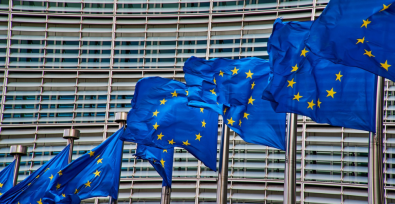In July groundbreaking human rights legislation was adopted by the E.U. encompassing manufacturing supply, raw materials and other parts of companies’ supply chains. Though it will not enter into force until 2027, MSN reports some global companies are already moving closer to compliance thanks to local laws supporting human rights due diligence which includes modern slavery.
Companies everywhere must “respect human rights”
The Corporate Sustainability Due Diligence Directive (CSDDD) is the name of a new rule passed earlier this year by the E.U. The CSDDD requires European companies to identify and prevent human rights abuses in their supply chains including modern slavery. If they don’t, they face increasing legal risks, according to the Minderoo Foundation, an Australian philanthropic organization. And legal risk is a major issue for investors. The CSDDD will hopefully see investors using their leverage to foster positive change.
Minderoo stated:
“Investors play a crucial role in driving ethical business practices and ensuring companies respect human rights in their operations.”
Amnesty International said the CSDDD “should send a message to all companies everywhere that they must respect human rights”. Prior to the CSDDD being passed some large Dutch pension funds were already raising the alarm about slavery in corporate supply chains. This rule is a first step towards addressing those concerns.
Supply chain due diligence: to ignore or not to ignore?
Some countries in Europe, like France, Germany and the Netherlands, already had human rights due diligence legislation on the books. The CSDDD will underline and build on that existing legislation. It also stands alongside the Uyghur Forced Labor Prevention Act (UFLPA) in the U.S. in terms of addressing modern slavery in supply chains. However, the U.S. law only applies to China, particularly the Uyghur region in China. The CSDDD applies globally, but it won’t enter into force until 2027. That leaves time for companies to prepare, or not prepare, as the case may be.
Speaking about the CSDDD coupled with local laws, David Birchall, a senior lecturer at Macquarie University in Australia said:
“(so far) many [companies] are paying no attention to the new rules. The key thing for multinationals is to know which laws they are covered by, as well as to begin preparing for the broader and often more stringent CSDDD,”
The UFLPA, in place since 2021, has already led to challenges for businesses and investors in the U.S. A recent congressional report found that BMW and Jaguar cars and components included a part linked to Uyghur forced labor. Both BMW and Jaguar said they are now taking action to bring their supply chain into compliance with the law. In Europe, thanks to laws passed by individual countries, some have already made changes to become more compliant. For example, Volkswagen now has staff dedicated to ensuring compliance with German human rights due diligence laws.
Lets take advantage of this momentum
Freedom United agrees with rights organizations like Amnesty International that the growing wave of legislation means companies everywhere need to get the message. The time has come, you MUST respect human rights and keep modern slavery out of your supply chain.
Let’s take advantage of this momentum and use our voice as civil society to cement real change. Sign our various petitions targeting companies demanding that they clean up their supply chains and root out all forced labor.







Freedom United is interested in hearing from our community and welcomes relevant, informed comments, advice, and insights that advance the conversation around our campaigns and advocacy. We value inclusivity and respect within our community. To be approved, your comments should be civil.